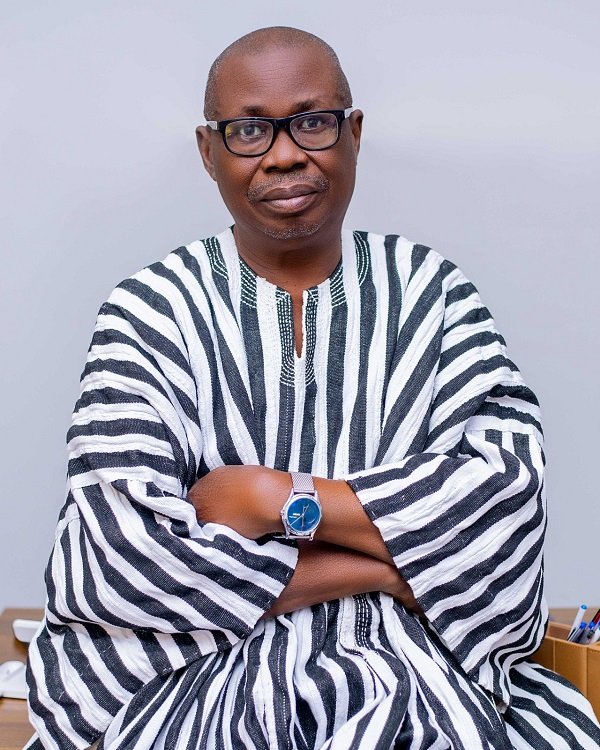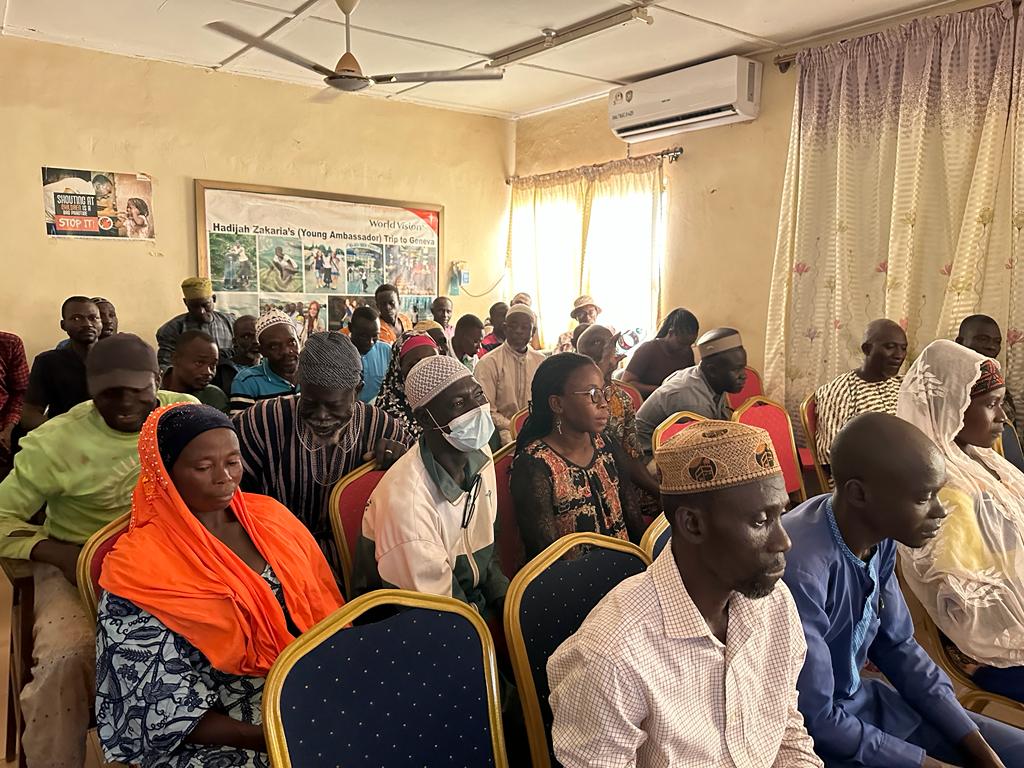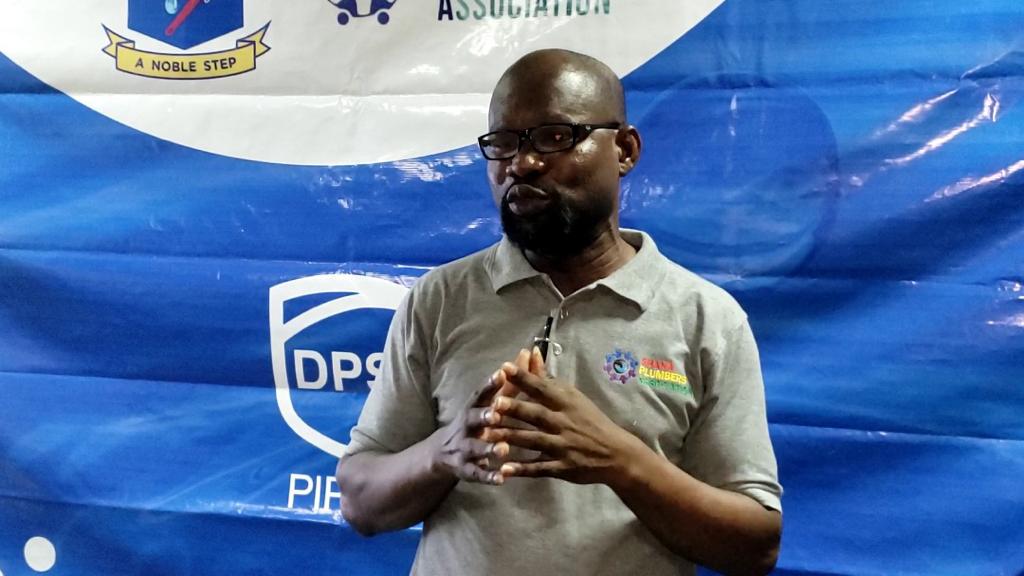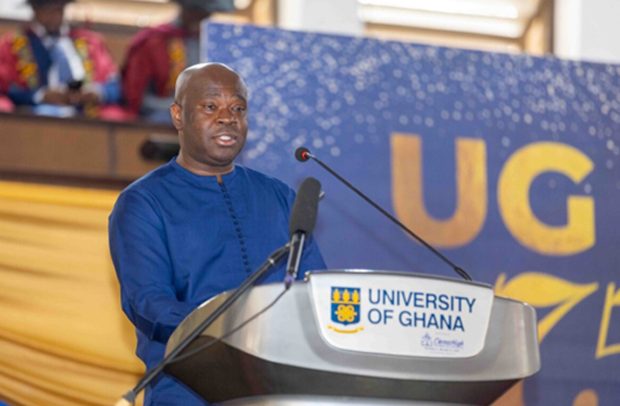
The President of Ghana Institution of Engineering (GhIE), Ing. Kwabena Bempong, has urged engineers in the country to embrace peer review of their works
He admonished that engineers must associate with other senior engineers in their area of specialisation who are ahead of them or peers to review their engineering designs and works. This, he explained, is because peer review is very important and helps to improve the quality and safety of engineering designs and products. Furthermore, it reduces the risk of failure, thereby increasing the safety of their work.
Ing. Bempong made these remarks in his welcome address at the 41st Induction Ceremony held on Thursday, February 22, 2024 at the Engineers Centre, Roman Ridge, Accra. He added that in the engineering career, “you can do all things, however, remember that there are limits to your practice”, adding: “If you are a Civil Engineer, stay in your lane; if you are Electrical Engineer, do same. You can’t be stamping drawings anyhow, or behave unethically in the engineering profession”. “We all have our expertise and we work within our defined spaces, so avoid over-extending yourselves into areas you do not have the necessary training or experience,” he further advised.

The Chairman of the Membership Committee of GhIE, Ing. Dr. Patrick Amoah Bekoe, presented 277 inductees, which comprised 258 candidates from the various Professional Engineering Occupational groups, 3 candidates from the Professional Engineering Technologists group and 16 candidates, who participated in the confirmation hearing.
He said the constitution of GhIE, in line with the Engineering Council law 2011, Act 819, makes provision for four main occupational groups; namely, Professional Engineers, Professional Engineering Technologists, Engineering Technicians and Engineering Craftsmen. He added that the institution is organised under four main Technical Divisions, which are: Civil Technical Division; Mechnical/Agric Technical Division; Chemical/Mining Technical Division and Electrical/Electronic Technical Division. Modern engineering disciplines – such as the likes of computer engineering, aerospace, biomedical, petroleum engineering, oil & gas, etc. – are all grouped under one of these technical divisions.
“For today’s induction, all the inductees belong to the Professional Engineers and Professional Engineering Technologist occupational groups”, Ing. Dr. Bekoe explained.
Providing a word of advice to the newly inducted engineers, Ing. Dr. Kwame Boakye, a past President of GhIE and Chairman of the Engineering Council of Ghana, urged the new engineers to adhere to ethical standards, be active in the activities and programmes of GhIE, and continuously update their knowledge through continuous professional development (CPD) programmes organied by the institution. He noted that engineering is increasingly a team activity, where multiple disciplines are required to come together to fashion a solution that is sustainable. He added that the mechanism also helps us to transform our “individual excellence” to “group excellence” and “smart individuals” to “smart institutions”, which are critical for national development. He cautioned that a nation of self-centred brilliant individuals will not move forward, adding that: “One of the challenges to progress in Ghana and Africa, in general, is that we have individual excellence but no group incompetence; and that does not promote progress and development.
In his closing remarks, the Executive Director of GhIE, Ing. David Kwatia Nyante, told the newly-inducted engineers that their membership of an institution like the GhIE provides a platform for collaboration, knowledge-sharing and the cultivation of a sense of professional identity. It serves as a unifying force, binding together individuals with a shared commitment to upholding the highest standards of ethics, integrity and excellence. Ing. Nyante urged the new engineers to recognise the synergy between being licensed to practice and being a member of the GhIE. He reminded them that their professional growth will not only be measured by technical prowess but also by their active engagement in the professional community.
The President of the Institution, Ing. Kwabena Bempong, led the new engineers and technologists to swear the Engineering Practitioners Oath.
The post Engineers urged to embrace peer review of their works appeared first on The Business & Financial Times.
Read Full Story



























Facebook
Twitter
Pinterest
Instagram
Google+
YouTube
LinkedIn
RSS